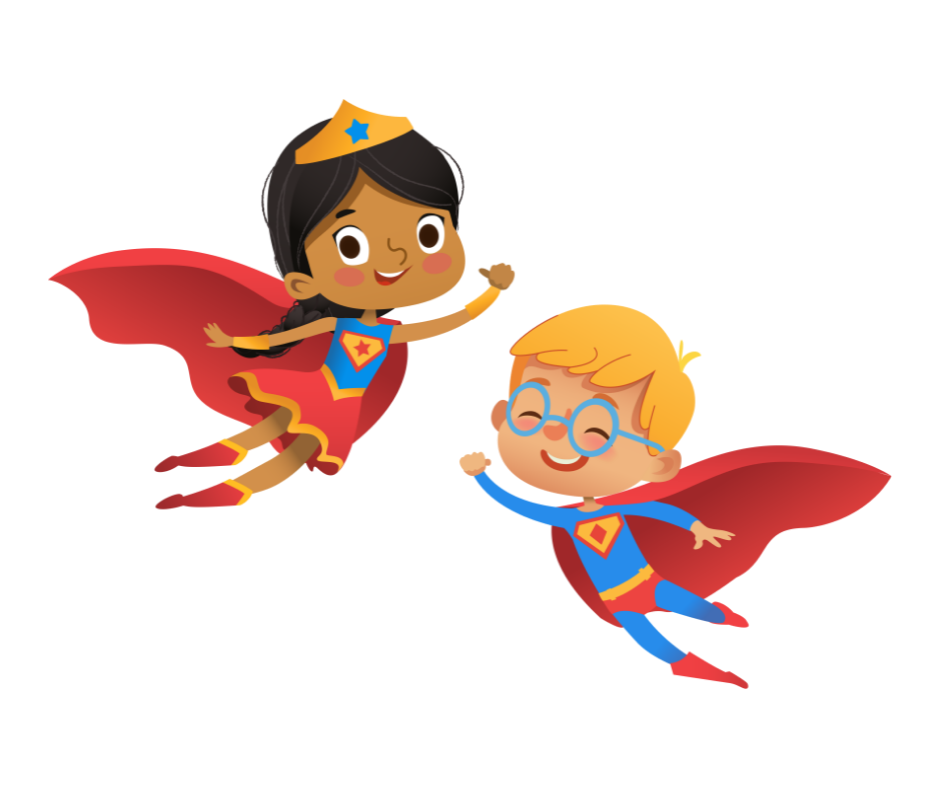What's Your Superpower?
What’s your superpower?
I’m not talking about reading minds, flying, or - my personal favorite - teleportation. The power that all of us have, and that we can choose to use, is the power to help.
When I was a school counselor giving guidance lessons for elementary-school children, this was a fun lesson to give. My office walls would be filled with paper superheroes that the students colored and cut out. We would talk about how we all have personal power, and we choose whether we want to help or to hurt. The students and I would share examples of what it looks like to use our power to help. With younger students, the more concrete and specific, the better. The examples can get more sophisticated with older students:
When I get at least 8 hours of sleep and eat breakfast, I’m using my power to help my body and brain grow healthy and strong.
When I raise my hand, I’m using my power to help my teacher and other students by not distracting or interrupting the lesson.
When I play with Johnny at recess, I’m using my power to help by letting him know that he has a friend and matters.
When I see someone getting hurt, and I get an authority figure involved, I’m using my power to help by making sure that kiddo is safe.
There are so many more examples!
It was also a useful tool when reflecting with students on the choices that may have caused another pain. When you tie in empathy and perspective-taking, you are building the foundation of emotional intelligence.
When you cut the line in front of Johnny, how were you using your power? How do you think that made Johnny feel?
When I work with older students, I expand on the idea of personal power (they may not be as into the superhero bit) and talk about choices and consequences. It’s a good time to explain that consequences are not necessarily negative; it’s just the result of something that has happened or a choice that was made. This could lead to bigger discussions and more abstract scenarios with these questions in mind:
- What are some possible consequences of this choice you are going to make?
- Are you able to handle it?
- Who else may be affected?
- Are you okay with that?
One thing to keep in mind: It is important to be trauma-informed when working with students and to be mindful that the behaviors you see may be adaptations for survival. Some kids/people are literally doing whatever they can to make it through the day as safely as possible. They may not be as able to think about the needs of others when their own needs are not being met. In this case, adults should do whatever they can to ensure students’ safety and to get them connected to resources in the community for additional care, when appropriate and necessary.
In all of your interactions, you have an opportunity to use your power to positively impact someone’s day.
- A simple smile
- Saying please and thank you
- Being mindful of your tone at the checkout line when you’ve been waiting a while
- Bringing someone a surprise treat when they least expect it
- Truly being present with your family by putting away your phone
- Really listening to someone without thinking about how you will respond
- Not engaging in side conversations at the staff meeting
All of these examples can go a long way to help someone else. And with all the mirror neurons firing from these feel-good actions, you will feel good as well!
So, how will you choose to use your power?
New on the Blog
5 Ways School Counselors, Teachers, and Caregivers Can Help Calm Students’ Anxieties
Most of us can remember feeling dread in the moments before taking a test, and the fears, self-doubt...
A Matrix for Measuring Success
The Success Nebulous I am always fascinated by the different ways families define and measure...
KEEPERS: Seven Tips for Strengthening Relationships with Students
When it comes to any type of counseling, the strength of the therapeutic relationship is the number...
Teaching Kids How to Be a Great Friend and Have Great Friends
“In order to get a friend, you have to be a friend. Be ready to be a friend.” This insig...
The Treasures You Seek
The week before Christmas, my husband and I filled up our travel mugs with coffee and ventured for...
Cheers to a Fresh Start: Embracing Progress Over Perfection in the New Year
“I’ll start my diet on Monday. I’ll start my diet this summer. I’ll start my diet in 2025…” Sound...
